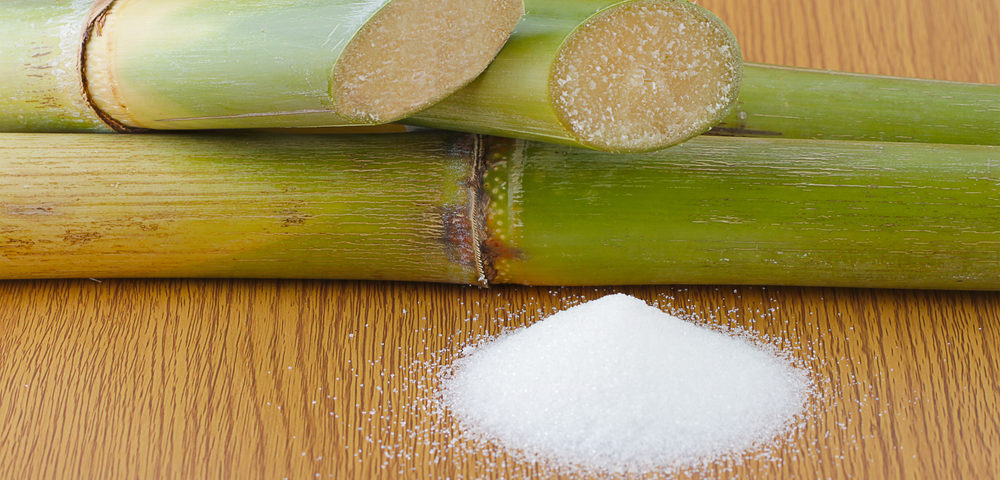Sugar and Cane: A Sweet Pairing in Health-Conscious Recipes
Sugar and Cane: A Sweet Pairing in Health-Conscious Recipes
Blog Article
Why Walking Cane Sugar Handling Chemicals Are Important for Modern Sugar Refining
The role of cane sugar processing chemicals in modern sugar refining can not be overstated, as they are important to improving both the efficiency of extraction and the overall top quality of the last item. Representatives such as phosphoric acid and particular flocculants are utilized to remove pollutants, resulting in sugar that not just fulfills consumer assumptions but also abides by industry requirements. The ramifications of these chemicals extend beyond top quality, touching upon market characteristics and ecological considerations. sugar and cane. This increases crucial concerns regarding the sustainability of such techniques and their effect on the future of sugar manufacturing.
Duty of Processing Chemicals
The efficacy of walking cane sugar handling pivots substantially on the calculated application of processing chemicals. These chemicals play a pivotal function in improving the performance and quality of sugar extraction and refining. From the first phases of juice extraction to the last purification steps, processing chemicals assist in numerous essential operations.
In the removal stage, chemicals such as phosphoric acid and calcium hydroxide are utilized to optimize the explanation process, aiding to remove pollutants and suspended solids from the cane juice. This not just improves the return yet additionally guarantees the clearness of the final product. In addition, representatives like flocculants help in the rapid settling of contaminations, thereby simplifying the total process.
As the handling advances, chemicals are utilized in decolorization and crystallization stages. Activated carbon and ion exchange resins offer to eliminate shade and smell, making certain that the polished sugar meets customer quality standards. Inevitably, the duty of processing chemicals prolongs beyond functional effectiveness; they considerably impact the sensory characteristics of the end product, contributing to market competition. Thus, the precise choice and application of these chemicals are crucial for achieving optimum end results in walking stick sugar processing.
Trick Kinds Of Chemicals
Walking stick sugar handling relies upon a selection of key chemicals that promote each phase of production. These chemicals play important duties in clarifying, bleaching, and cleansing the sugar drawn out from walking cane.
One main category of chemicals includes flocculants, such as polyacrylamide, which aid in the information process by advertising the gathering and settling of pollutants. In addition, calcium hydroxide is often utilized to counteract level of acidity and aid in the elimination of non-sugar parts.
Lightening representatives, such as activated carbon and sulfur dioxide, are used to decolorize the syrup, resulting in a clearer last item. These chemicals assist eliminate shade substances that might impact the sugar's look and marketability.
In addition, phosphoric acid serves as a pH regulatory authority throughout the handling stages, making sure optimum problems for the enzymatic activities entailed in sugar removal and filtration.
Other crucial representatives include edta (ethylenediaminetetraacetic acid), which chelates metal ions that can catalyze undesirable reactions, and salt hydroxide, which helps in pH control throughout the refining process. Jointly, these chemicals improve effectiveness and guarantee a top notch walking stick sugar product.
Benefits for Sugar Quality
Often forgotten, using specific handling chemicals dramatically improves the total high quality of cane sugar. These chemicals play a critical role in refining procedures, guaranteeing that the end product meets rigorous sector requirements for pureness and taste.

Additionally, refining chemicals assist in accomplishing a constant granulation and structure, which are important for customer approval. By regulating the condensation process, these chemicals guarantee that the sugar crystals create evenly, bring about an extra attractive item that dissolves well in various applications.
Moreover, making use of these chemicals can improve the service life of walking cane sugar by decreasing dampness absorption and microbial development. Full Article In general, the tactical application of handling chemicals is essential for delivering top quality cane sugar that fulfills customer assumptions and market demands.
Environmental Influence Factors To Consider

In addition, the energy-intensive nature of sugar refining, intensified by chemical usage, usually results in increased carbon emissions. This adds to climate change and raises issues relating to the sustainability of existing refining practices. Furthermore, the sourcing of these chemicals may include methods that endanger biodiversity, such as monoculture farming, which decreases the durability of agricultural ecological communities.

To alleviate these influences, sugar refiners are increasingly exploring lasting choices and adopting finest techniques that reduce chemical use. Carrying out extensive environmental monitoring systems can aid make certain that the refining procedure lines up with environmental criteria and advertises biodiversity. Ultimately, a well balanced technique that prioritizes both sugar top quality and ecological stewardship is crucial for the lasting feasibility of the sugar industry.
Future Fads in Refining
As the sugar market comes to grips with the ecological obstacles linked with standard refining methods, cutting-edge methods are emerging to improve both performance and sustainability. One considerable fad is the fostering of environment-friendly chemistry concepts, which focus on making use of safe, naturally degradable processing chemicals. This change not only decreases environmental influence yet also addresses customer demand for cleaner manufacturing methods.
One more promising advancement is the implementation of sophisticated purification modern technologies, such as membrane splitting up and adsorption processes. These strategies improve the clearness and high quality of the sugar while decreasing the quantity of wastewater generated during refining. In addition, the integration of digital innovations, consisting of IoT and AI, is transforming operational effectiveness click here for more info by enabling real-time tracking and anticipating upkeep, thus lessening source waste.
Moreover, making use of byproducts from sugar refining, such as bagasse and molasses, is acquiring traction. These products can be transformed into biofuels or value-added items, adding to a circular economic situation within the industry. Collectively, these fads signal a shift in the direction of even more lasting practices that not only improve functional efficiency but likewise line up with worldwide sustainability objectives, making sure the future stability of sugar refining.
Conclusion
Cane sugar processing chemicals are crucial in modern sugar refining, significantly enhancing the effectiveness and top quality of sugar removal. The tactical use these chemicals not only enhances the purity and flavor of the end product but also guarantees consistent condensation and structure. As the market progressively prioritizes sustainability, the adoption of environmentally-friendly processing representatives is likely to shape future trends in refining, ultimately leading to better items and prolonged life span for customers.

Ultimately, a balanced approach that prioritizes both sugar high quality and ecological stewardship is vital for the long-term feasibility of the sugar sector.
Cane sugar processing chemicals are necessary in modern sugar refining, considerably enhancing the effectiveness and top quality of sugar removal.
Report this page